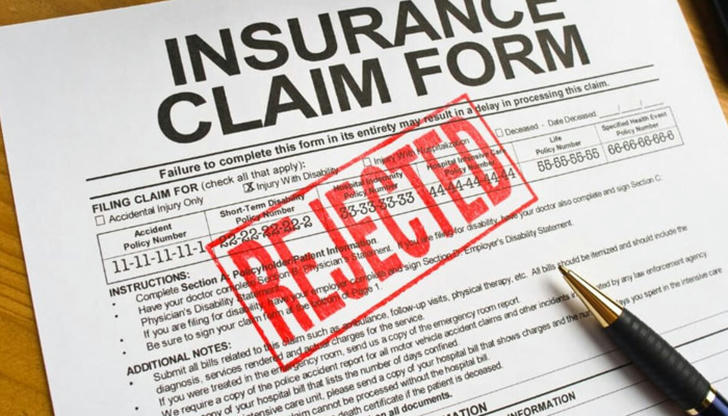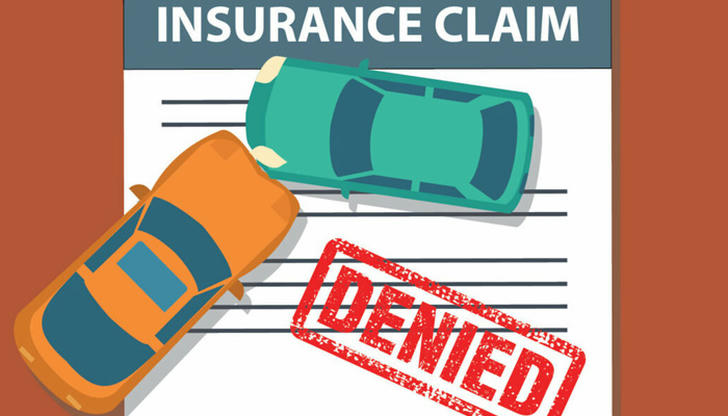What to Do When Auto Insurance Denies a Claim?

Dealing with an auto insurance claim denial can feel like a punch in the gut. You've done everything right—filed the claim, provided documentation, and waited for a resolution—only to be left frustrated when your insurer refuses to pay. The good news? Denials are not the end of the road. With the right approach, you can fight back and possibly overturn the decision. Here’s a step-by-step guide to help you navigate this tricky situation.
Steps to Take if Your Car Insurance Claim Is Denied
Auto insurance claim denials are more common than you might think, but understanding why it happened is the first step toward resolving the issue. Follow these actionable steps to address the denial effectively.
1. Understand the Reason for Denial
Your insurer is legally obligated to explain why they denied your claim. Carefully review the denial letter or email to identify the reason behind their decision. Common reasons for claim denial include:
• Policy exclusions (e.g., damage caused by an uninsured driver not covered).
• Lack of sufficient evidence to support your claim.
• Filing the claim outside the policy's coverage period.
• Discrepancies in the details of the incident.
Pro Tip: Request a detailed explanation if the denial letter is vague. Miscommunication or clerical errors can sometimes lead to unjustified denials.
2. Review Your Insurance Policy

Once you know the reason for the denial, revisit your insurance policy. Pay close attention to:
• Coverage Limits: Ensure your claim falls within your policy’s limits.
• Exclusions: Verify whether the damage is explicitly excluded.
• Conditions for Filing Claims: Check if you met deadlines and provided all necessary documentation.
3. Gather and Organize Evidence
Insufficient evidence is a frequent reason for denied claims. Strengthen your case by collecting and organizing:
• Photographs of the accident scene or damages.
• Police reports or incident documentation.
• Witness statements.
• Any communication with your insurer.
Tip: Keep copies of all documents submitted to your insurer for future reference.
4. Contact Your Insurance Agent
Reach out to your insurance agent or the customer service department to discuss the denial. Sometimes, a simple clarification can resolve the issue. Ask them to:
• Explain the denial in detail.
• Verify whether all required documents were received.
• Reconsider the claim based on any new evidence you can provide.
This personal interaction can also reveal whether the denial was the result of a misunderstanding.
5. File an Appeal
If the insurer sticks to their denial after your initial discussions, you have the right to appeal. Here's how:
• Write a formal appeal letter, clearly outlining why you believe the denial was unjustified.
• Include all supporting documents, such as photos, receipts, and witness statements.
• Submit the appeal through your insurer's specified process (e.g., online portal or certified mail).
What to Do If Car Insurance Refuses to Pay for Damages

When all else fails, it’s time to escalate the matter. Here’s how to take things to the next level if your insurer refuses to pay for damages.
1. Involve a Claims Adjuster or Third-Party Mediator
Hiring a public claims adjuster can work in your favor. These professionals:
• Assess the damage independently.
• Negotiate directly with your insurance company on your behalf.
• Help ensure you receive a fair settlement.
Alternatively, you can seek mediation through your state’s insurance department. Many states offer free or low-cost mediation services to resolve disputes.
2. File a Complaint with Your State Insurance Commissioner

If negotiations fail, file a formal complaint with your state’s insurance regulatory authority. Insurance companies are obligated to operate fairly, and a complaint can trigger an investigation. To file a complaint:
• Gather all communication records with your insurer.
• Document the denial reason and why you believe it’s incorrect.
• Submit your complaint online or via mail to your state’s insurance department.
3. Explore Legal Options
As a last resort, consider taking legal action against your insurer. Consult with an attorney specializing in insurance disputes. They can:
• Advise on the strength of your case.
• Represent you in court if necessary.
• Possibly recover damages for bad faith practices.
4. Learn from the Experience

While navigating a claim denial is frustrating, it’s also an opportunity to evaluate your current coverage. Moving forward:
• Ensure your policy meets your specific needs.
• Consider switching to a more reliable insurance provider.
• Regularly review and update your coverage.
